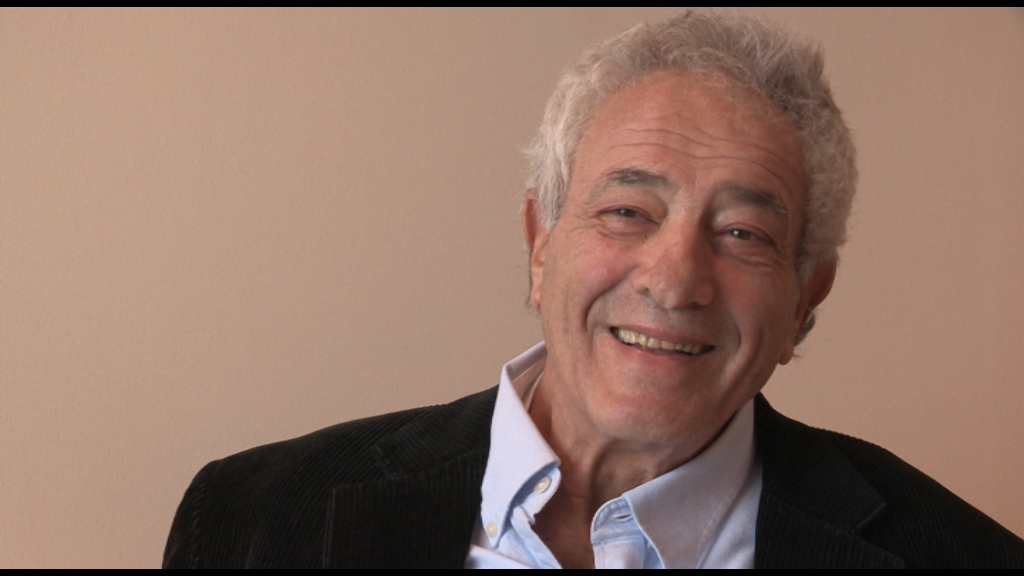NEXT STORY

Humble beginnings at Avon Books
RELATED STORIES

NEXT STORY

Humble beginnings at Avon Books
RELATED STORIES


|
Views | Duration | |
|---|---|---|---|
| 31. Making a living driving New York cabs | 23 | 02:51 | |
| 32. Bagels in the basement | 31 | 02:30 | |
| 33. Discovering Call It Sleep | 30 | 07:45 | |
| 34. A classic tale about the immigrant experience | 23 | 01:40 | |
| 35. Early success at Avon Books | 32 | 03:19 | |
| 36. Humble beginnings at Avon Books | 46 | 03:33 | |
| 37. Re-publishing Michael Gold's Jews Without Money | 32 | 05:19 | |
| 38. Summoned to see the boss | 27 | 08:33 | |
| 39. Working the lobster shift at the New York Times | 22 | 06:27 | |
| 40. Getting a foot in the door | 15 | 04:30 |


It was a great book and so I published it at Avon Books which was my first job after the Orion Press which we've talked about, and it got a front page in The New York Times Book Review and went on to sell, I think, over a million copies easily and was published in every country in the world and Henry and I, of course, came to know each other.
I went up to Maine with the ink still wet on the front page of The New York Times Book Review because a friend there at The New York Times Book Review told me that this was about to happen three or four days later and I said, can you run off a page of it because this wild fowl farmer in Maine won't believe this! So he did and I got on the plane and I arrived in I think Augusta, Maine. I think Henry and Muriel's home was somewhere near there and I arrived in a blazing – I'm sure that's the wrong word – a whirling snowstorm, and this little Jewish man in his red Maine mackinaw greeted me at the airport and said, my goodness, you're very young. Well, my youth – I was probably still in my 20s, I don't know even any longer what year it was – well, he was probably 65 and what he had written about he'd written about 30 years earlier in the 30s.
So there was no way that what the book was about in terms of historicity could have meant anything to me, and it didn't, except that I lived on the street where this novel took place and Eddie Adler, a cab driver, who later on went on to become a novelist, and a novelist published by Knopf, and his novel, which was a very good one, was called, Notes from a Dark Street. Don't know if he wrote a second one, but he went out to Hollywood, my cab driver, who shared the employer in Harlem, George's, and I think he wrote scripts for a television show called, The Nurses, but I don't think he ever wrote anything again. Poor Eddie, he may still be alive and I hope he never hears this, I don't think he ever wrote anything as good as this one novel that he wrote for Knopf and he's the one who told me about, Call It Sleep.
Peter Mayer (1936-2018) was an American independent publisher who was president of The Overlook Press/Peter Mayer Publishers, Inc, a New York-based publishing company he founded with his father in 1971. At the time of Overlook's founding, Mayer was head of Avon Books, a large New York-based paperback publisher. There, he successfully launched the trade paperback as a viable alternative to mass market and hardcover formats. From 1978 to 1996 he was CEO of Penguin Books, where he introduced a flexible style in editorial, marketing, and production. More recently, Mayer had financially revived both Ardis, a publisher of Russian literature in English, and Duckworth, an independent publishing house in the UK.
Title: Early success at Avon Books
Listeners: Christopher Sykes
Christopher Sykes is an independent documentary producer who has made a number of films about science and scientists for BBC TV, Channel Four, and PBS.
Tags: The New York Times Book Review, Notes From a Dark Street, Henry Roth, Eddie Adler
Duration: 3 minutes, 19 seconds
Date story recorded: September 2014-January 2015
Date story went live: 12 November 2015